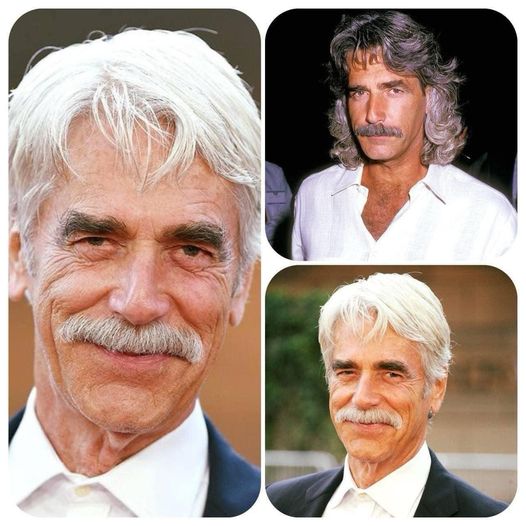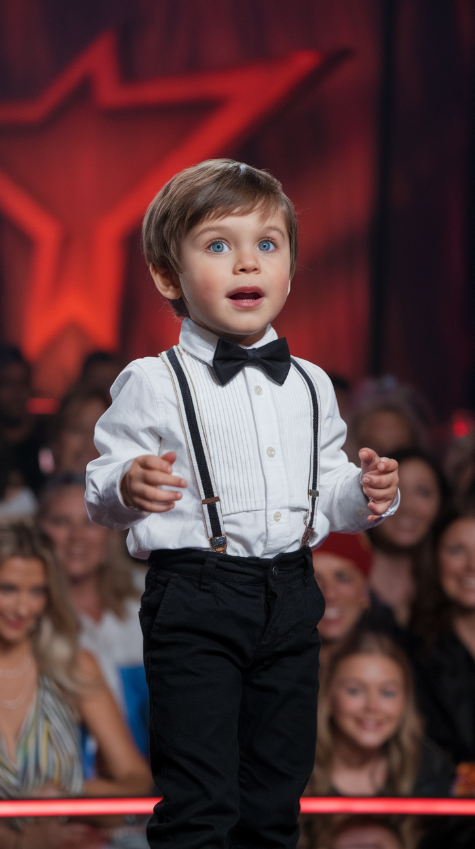
We only wanted to lift his spirits.
The past two weeks had been hard—new town, new school, new routines. Jordan hadn’t said much since the move, his usual bright personality dulled by the unfamiliar. So when we passed the community block party and saw the line of kids taking photos on police motorcycles, I thought, “Why not?” Maybe, just maybe, it would make him smile.
Officer Bellamy was exactly the kind of person you’d hope your child meets in a new neighborhood—warm, patient, and kind. I watched with cautious hope as he knelt beside Jordan, helped him onto the motorcycle, and spoke to him gently. And for the first time in days, I saw my son smile.
Their conversation was brief, mostly one-sided. Jordan just nodded, staring at the handlebars. But then he leaned in close and whispered something to the officer. Whatever he said made Bellamy freeze. The officer’s expression shifted from friendly to… distant. It was quick, subtle, but unmistakable. He blinked, stepped back from the bike, and the mood changed.
“What did you say, Jordan?” I asked, approaching. My tone was light, but worry crept in.
Bellamy gave me a tight smile before kneeling again to meet Jordan’s gaze. “You okay, buddy?” he asked softly.
Jordan nodded, but his eyes seemed older somehow, heavier. He didn’t speak. And my unease only grew.
The officer stood, glanced at me, then at Jordan. “You’ve got a good kid,” he said. “A really good one.”
I thanked him, but something in his voice made the words catch in my throat. Something unspoken hung between us. And when we walked away, Jordan’s smile vanished. On the way home, he was silent again, distant. I tried asking about the motorcycle, about Officer Bellamy—but he just stared out the window.
That night, after Jordan had gone to bed, I couldn’t shake the memory of Bellamy’s reaction. It didn’t add up. What could Jordan have said that made him respond like that?
I told myself I was imagining things. Jordan had been through a lot—maybe I was just overthinking. But around midnight, my phone buzzed. An unknown number lit up my screen with a message:
Call me when you can. It’s about Jordan.
My heart pounded. I dialed without thinking.
“Ms. Langford?” the voice said. “This is Officer Bellamy. I’m sorry to call so late, but I think we need to talk.”
“Is something wrong? Is Jordan okay?”
“He’s safe, physically. But… earlier today, he told me something I can’t ignore.”
There was a pause. Then Bellamy continued, his voice low.
“He asked me what it’s like to live in constant fear. To never feel safe. It wasn’t casual—it felt… raw. Like he meant it.”
The words hit me like ice water. “He said that?”
“He did. And the way he said it—quiet, deliberate—it stayed with me. I don’t think it was about everyday fears. It felt deeper. Like something’s been weighing on him.”
I thanked him, then sat alone in the dark, reeling. What was Jordan going through that he hadn’t told me?
The next morning, I sat with him. Gently, carefully, I asked him how he was feeling. At first, he shut down. But then the words came.
“I miss my friends,” he said. “I miss my room. I miss everything.”
“I know,” I told him, trying not to cry. “It’s hard. But we’ll make this place home. I promise.”
He hesitated, then added, barely a whisper, “It’s not just that. This town feels… wrong.”
My chest tightened. “What do you mean?”
“I keep seeing people watching me. I feel like someone’s always behind me. I turn around—and no one’s there. But I know I’m not imagining it.”
Tears welled in his eyes. “I didn’t want to scare you. That’s why I told Officer Bellamy. I just wanted someone to understand.”
I wrapped him in my arms, heartbroken. No child should carry that kind of fear.
That afternoon, I began to dig into the town’s history. What I found shook me. Over the years, there had been reports of disappearances—quietly brushed off, never resolved. Rumors. Whispers. A past the town didn’t want to remember. But Jordan had sensed it.
The next day, I took him to a therapist. I wanted him to talk to someone trained to help him work through this. Slowly, he began to open up. The fear didn’t vanish overnight, but I saw the tension in his shoulders begin to ease. He started to sleep again. He started to laugh.
Officer Bellamy stayed in touch, checking in, helping however he could. He wasn’t just a uniform—he was a person who listened, who cared. And that made all the difference.
What I learned through this was simple but profound: sometimes, the things that scare us most—the things we don’t fully understand—are the very things that bring us closer to truth, healing, and strength. And love, patience, and support can pull us through the darkest shadows.
If you’ve ever felt lost, unsure, or afraid—know this: you’re not alone. There is always help. Always someone who will listen. Don’t be afraid to reach out. It can change everything.
If this story moved you, share it. Someone out there might need it more than you know.



